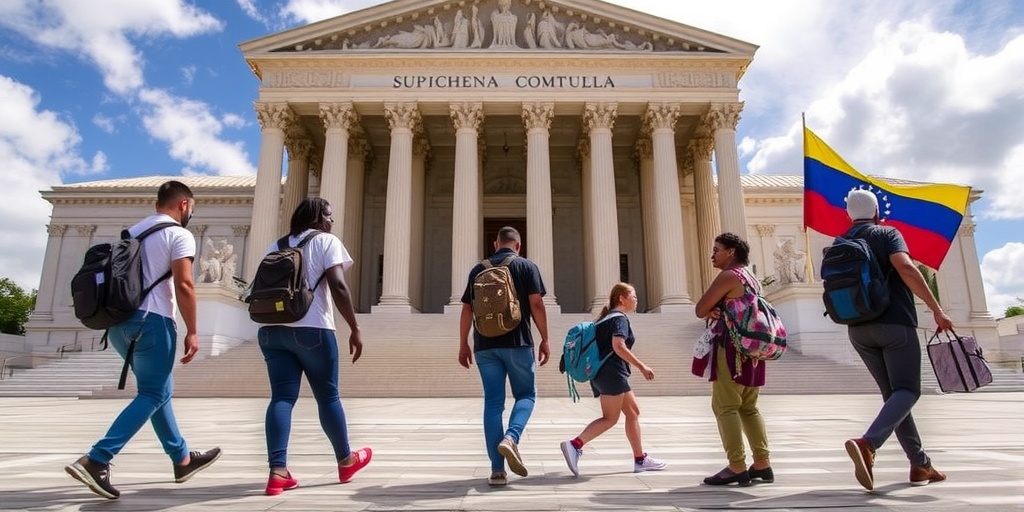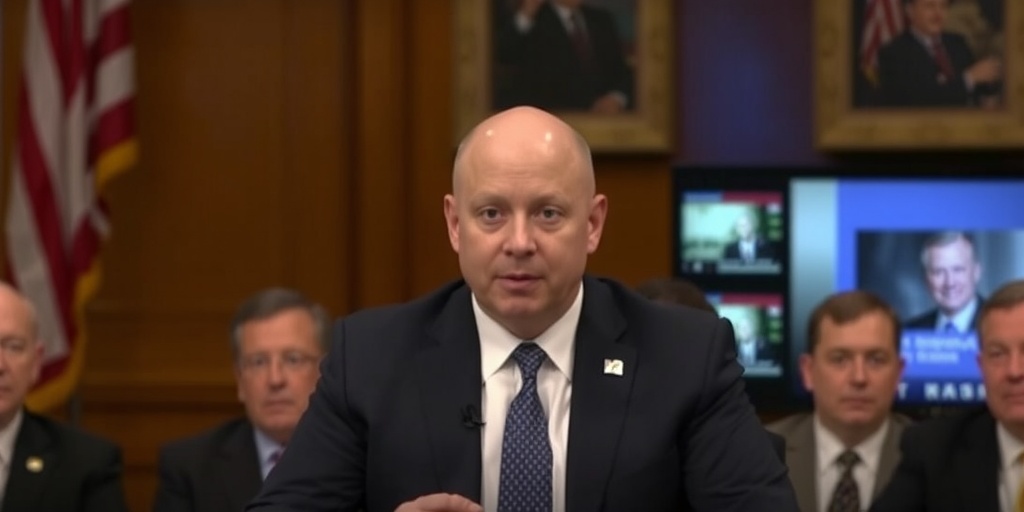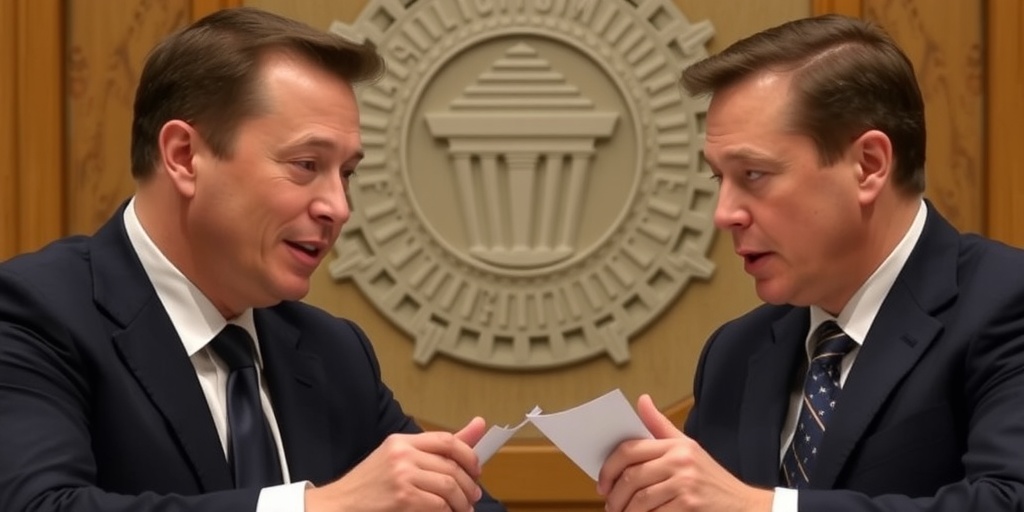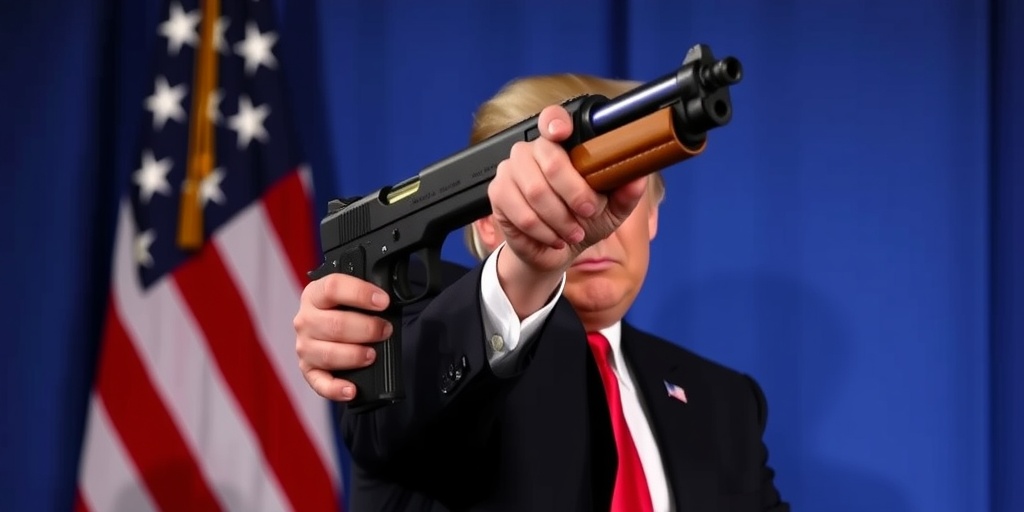Now Reading: Supreme Court Lifts Ban on Venezuelan Deportations
-
01
Supreme Court Lifts Ban on Venezuelan Deportations
Supreme Court Lifts Ban on Venezuelan Deportations

Supreme Court Clears Way for Trump Administration to Deport Venezuelans under Wartime Law
In a significant ruling on Monday evening, the Supreme Court vacated a prior decision by a lower court that had temporarily prevented the Trump administration from utilizing a wartime powers law to deport Venezuelan migrants. This decision represents a notable win for the Trump administration, albeit one that is narrow in scope; it does not challenge the administration’s rationale for deporting Venezuelans but instead centers on the appropriate jurisdiction for addressing such cases.
The Supreme Court’s decision has left unresolved the contentious issue of whether the administration properly classified these Venezuelan migrants under the Alien Enemies Act, a law dating back to 1798 that allows the government to deport individuals considered enemies in times of war. The Court found that the Venezuelan migrants had incorrectly filed their challenges in Washington, D.C. Instead, the justices determined that these challenges should have been processed in Texas, where the migrants were being detained.
The Court’s brief and unsigned order clarified, “The detainees are confined in Texas, so venue is improper in the District of Columbia.” In a separate concurrence, Justice Brett M. Kavanaugh underlined that all justices agreed on the necessity of judicial review for the migrants but differed on where such reviews ought to take place.
This case is particularly high-profile among the emergency applications filed by the Trump administration to the Supreme Court, representing a direct conflict between judicial authority and executive power. The administration had called upon the justices to address its attempted application of the Alien Enemies Act that would enable the deportation of over 100 Venezuelans to a prison in El Salvador.
The administration contends that these migrants are purportedly affiliated with Tren de Aragua, a violent street gang based in Venezuela, justifying their removal under a law that empowers the president to detain or deport nationals of enemy states during declared war or invasions. In March, President Trump proclaimed a national emergency targeting members of Tren de Aragua, asserting that an “invasion” and “predatory incursion” was occurring, which warranted the invocation of the wartime law. He alleged that the gang was acting under the influence of the Venezuelan government in hostile activities against the U.S.
Following the proclamation, lawyers for the affected migrants filed a challenge in federal court in Washington. Simultaneously, flights began transporting the first round of deportees to El Salvador, which had made a deal with the administration to accept and detain these Venezuelan nationals.
Federal judge James E. Boasberg intervened to halt these deportation flights, subsequently issuing a temporary restraining order to pause the administration’s plans as legal proceedings unfolded. An appellate court in Washington upheld this restraining order, with one judge criticizing the government’s approach and asserting that the Venezuelans were denied “even a gossamer thread of due process.”
In response to this judicial ruling, the Trump administration reached out to the Supreme Court for intervention, framing the case as one featuring “fundamental questions” regarding the authority to manage sensitive national security operations. The administration insisted that the legal pause obstructed its ability to execute its national security directives effectively.
Legal representatives for the migrants expressed strong opposition to the government’s stance, arguing that the temporary restraining order was crucial in preventing the administration from deporting individuals to what they termed a brutal and inhumane prison environment in El Salvador, where severe human rights abuses are prevalent.
The American Civil Liberties Union (ACLU) and Democracy Forward, working on behalf of the migrants, criticized the president’s reinterpretation of the law, claiming that it improperly expanded the executive power in a manner inconsistent with the legislative intent of the Alien Enemies Act. They highlighted the dire consequences faced by those deported, emphasizing reports of torture and human rights violations in Salvadoran detention facilities.
The Trump administration countered these allegations in its response to the Supreme Court by asserting that it acknowledged the migrants’ right to judicial review but insisted that procedural matters concerning the venue were of utmost priority. Acting Solicitor General Sarah M. Harris argued that challenges should emerge from Texas, where the migrants had been detained, rather than from Washington. She termed the delay put in place by the lower courts as unreasonably lengthy and detrimental to national security operations.
In her arguments, Harris emphasized that the government does not endorse torture and claimed that the migrants’ attorneys were presenting a distorted narrative concerning their circumstances and treatment.
This Supreme Court ruling facilitates the Trump administration’s path towards deporting Venezuelans under its wartime authority, yet the ongoing debates and legal challenges surrounding the treatment and rights of these migrants are expected to continue in the wake of this decision.
Stay Informed With the Latest & Most Important News
Previous Post
Next Post
-
 01New technology breakthrough has everyone talking right now
01New technology breakthrough has everyone talking right now -
 02Unbelievable life hack everyone needs to try today
02Unbelievable life hack everyone needs to try today -
 03Fascinating discovery found buried deep beneath the ocean
03Fascinating discovery found buried deep beneath the ocean -
 04Man invents genius device that solves everyday problems
04Man invents genius device that solves everyday problems -
 05Shocking discovery that changes what we know forever
05Shocking discovery that changes what we know forever -
 06Internet goes wild over celebrity’s unexpected fashion choice
06Internet goes wild over celebrity’s unexpected fashion choice -
 07Rare animal sighting stuns scientists and wildlife lovers
07Rare animal sighting stuns scientists and wildlife lovers




















